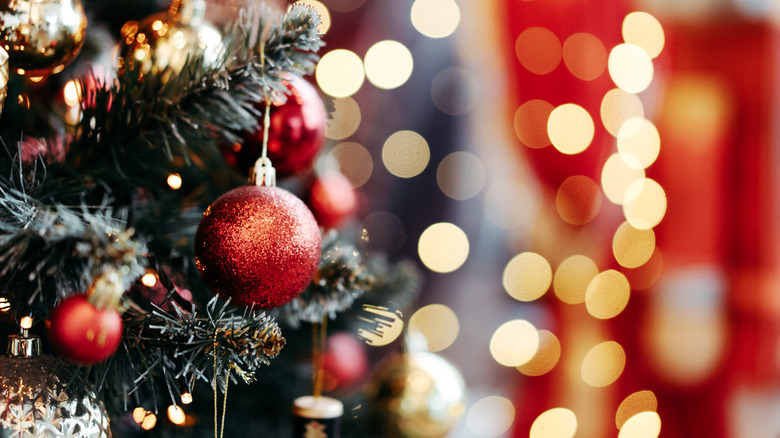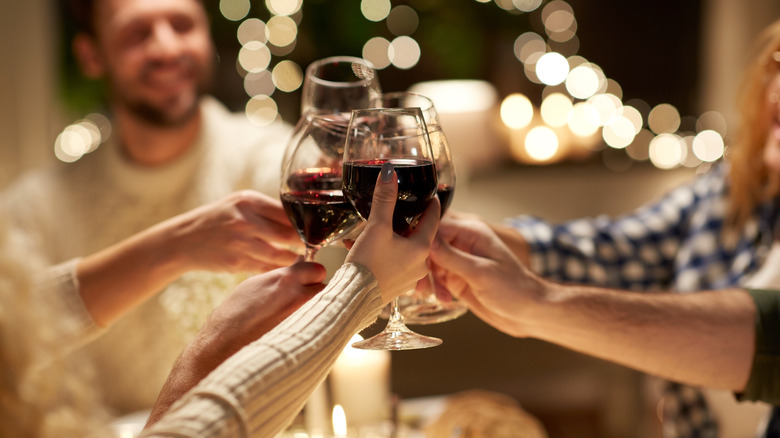Why Americans Say Merry Christmas
Irish playwright George Bernard Shaw once famously quipped that the United States and the United Kingdom are "two nations separated by a common language," as The National News notes. The two countries speak the same basic language, but as any linguist will tell you, language evolves over time and culture, and of course, the U.S. and U.K. are also separated by an ocean. As such, 250 years after we officially cut ties with each other, there are differences in the way we speak that extend just beyond accents.
Sure, the average American and the average Brit will, in almost all circumstances, probably be able to get the gist of what the other is saying, but there will be word usages and turns of phrase that can get heads scratching. A British person who goes to an American hardware store and asks for a "torch" will just get a confused look (he'd be asking about a flashlight), and an American customer who goes to a British clothing store and asks to be shown "pants" is going to wind up in a completely different part of the store (because the Briton will think he's asking about undergarments).
Another key difference between the two dialects comes in how we wish each other well during the nativity season. Specifically, Americans say "Merry Christmas," while the British say "Happy Christmas."
'Merry' means more than just 'happy'
You may think that "Merry Christmas" and "Happy Christmas" mean exactly the same thing, the only difference being two words that are synonyms. In fact, however, they are not synonyms, according to the "I Spot Santa" blog. Rather, "happy" means something not unlike "content," at least in this context, while "merry" actually emerged as a euphemism for being intoxicated. So what does this have to do with Christmas? Long story short, Christmas was a non-event in the U.S. for decades, and when it started to become fun again in the 18th century, well-wishers wanted to invoke not just Christmas contentment, but Christmas fun. As such, the phrase "Merry Christmas," referring to an actual Christmas filled with actual, alcohol-fueled merriment, became the norm, with a little help from the phrase figuring prominently in the Charles Dickens novella, "A Christmas Carol."
Meanwhile, over in England, "Happy Christmas" remains the norm, for a couple of reasons. One, according to Country Living, is because of lingering class associations over there. Specifically, the phrase "Merry Christmas" brings with it connotations of the lower classes carousing and behaving in an unseemly way, while "Happy Christmas" is more neutral. Also, the royal family uses "Happy Christmas" in their holiday greeting, and it seems the British public is okay with taking a page from the queen's book when it comes to the choice of phrase.

